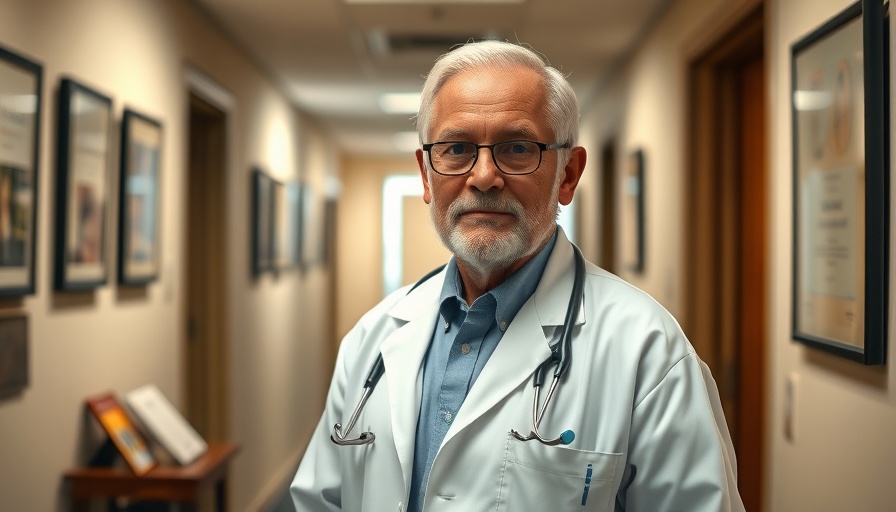
Understanding the Closure of a Long-Standing Abortion Clinic
The recent closure of the Boulder Abortion Clinic marks a significant moment in the landscape of reproductive healthcare in the U.S. For over 50 years, this clinic has provided essential services to women seeking late abortions, often due to grave medical reasons. The loss of such a facility raises questions about access, medical necessity, and the ongoing debate surrounding reproductive rights.
Dr. Warren Hern, the clinic's founder, expressed deep sorrow over the closure, highlighting the struggles faced by clinics in a challenging political climate. He stated, "It became impossible to continue, but closing is one of the most painful decisions of my life." Many former patients like Hannah Brehm have echoed similar sentiments, emphasizing the need for such care when facing heart-wrenching situations.
The Importance of Late Abortion Services
Although late abortions represent a small fraction of total procedures performed annually—just 1% of abortions occur after 21 weeks, according to federal data—the circumstances prompting these decisions can be incredibly complex and personal. Medical realities, such as discovering severe anatomical abnormalities or genetic disorders, often emerge after the first trimester. Additionally, some women may not realize they are pregnant until later on, further complicating their choices.
In many states, strict abortion laws leave few options for women seeking late-term procedures. Those who previously relied on the Boulder clinic now face a daunting landscape where access to necessary healthcare is severely restricted. As one former patient, Sarah Watkins, recounted her experience of traveling from Georgia to Colorado for care, her story illustrates a growing reality many women will face: the urgent need for reproductive services in their times of need.
Reproductive Rights and Political Implications
The closure of the Boulder Abortion Clinic is emblematic of a larger trend across the nation regarding reproductive rights. Advocacy groups on both sides of the debate continue to push their agendas, but the outcomes are profoundly personal for many women. Anti-abortion advocates herald the clinic's closure as a victory, positioning it as a step toward protecting both mothers and unborn children.
However, experts and reproductive rights advocates argue that such closures ultimately place women's health at risk. Reducing access to vital medical services does not eliminate the need for them; it simply makes the journey to obtain care more difficult, often leading to desperate measures. Furthermore, with the medical community itself acknowledging that late abortions often arise from serious health concerns, the navigation of this debate becomes far more intricate.
The Future of Reproductive Services in the U.S.
With an increasing number of clinics closing, what does the future hold for reproductive healthcare? The declining number of providers for late-term abortions suggests a need for a renewed focus on women's healthcare rights and welfare. As political climates shift, advocacy will be crucial in ensuring access to medical care remains available and comprehensive.
It's imperative that community members recognize the implications of such changes. Awareness and education on reproductive health issues are vital, not only for those directly affected but for all stakeholders in the healthcare ecosystem. Drawing attention to the struggles and experiences of women like Brehm and Watkins emphasizes the human side of the debate, reminding policymakers of the real lives impacted.
Emotional and Human Interest Perspectives
At its core, the conversation about late abortions is deeply rooted in personal stories that reflect profound emotional and psychological dimensions. For many, the decision to pursue a late abortion is not taken lightly; it is often borne from heartbreak and the complexities of life. Emphasizing the human experience in these discussions enhances understanding and compassion, bridging the gap between differing viewpoints.
As we move forward, acknowledging and amplifying personal narratives within the broader framework of reproductive rights may foster a healthier discourse. Striking a balance between medical necessity, ethical arguments, and personal choice is critical to advancing genuine understanding on all sides.
A Call to Stay Informed and Engage
The closure of key facilities like the Boulder Abortion Clinic serves as a crucial reminder of the ever-evolving landscape of reproductive rights in the U.S. Each closure tells a story—a story that affects countless women and their families. As citizens and community members, it is vital to remain informed, engage in discussions about healthcare access, and advocate for policies that ensure all women receive the necessary medical care.
The implications of these closures stretch far beyond individual circumstances. They touch on public health, welfare, and social rights that shape community health outcomes. Staying engaged and informed allows us to make empowered choices and advocate for a future where healthcare is accessible to all.
 Add Row
Add Row  Add
Add 






Write A Comment